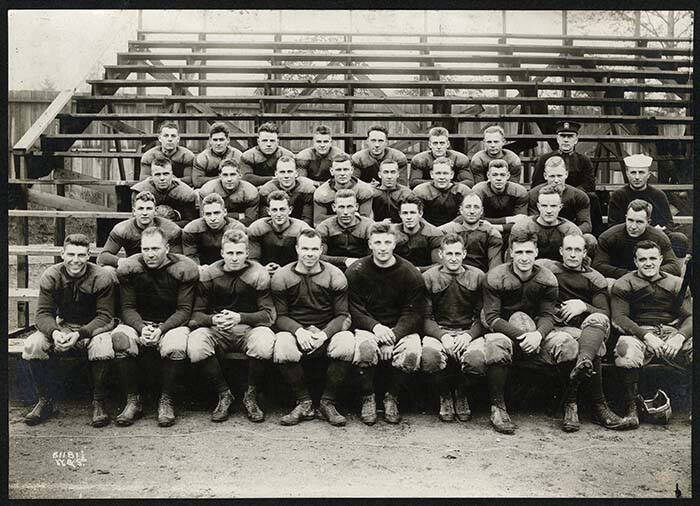Image


The FIFA World Cup Final was today, Sunday, December 18, 2022, at 10 AM! Argentina defeated defending Champions France in a game that went down to penalty kicks.
As the massive spectator sport comes to an end, let's learn a little bit more about the origins of this game, and whether it's called football or soccer.
 The Argentina national football team at the 1916 South American Championship (currently Copa América) posing before the match vs. Chile.
The Argentina national football team at the 1916 South American Championship (currently Copa América) posing before the match vs. Chile.It’s not soccer, it’s football, or at least that’s what the British want us to think.
Americans get a lot of shade for our peculiar sporting culture: most notably the fact that we call football (the game you exclusively play with your feet) soccer, and American Football is mostly played with the hands. It doesn’t make sense, and the U.S. takes the blame.
While our decision to label our sports is certainly questionable, the U.S. is not responsible for the name soccer. As a matter of fact, the word soccer comes from the British!
Because the sport originated in England, it is believed that soccer is an "Americanism." In fact, the word is thoroughly British in origin. So why do Americans call the sport soccer and the British call it football? The answer lies in how the sport developed.
Although football-type games have existed for centuries, the sport we know today as football (or soccer) is generally believed to have begun in 1863, when England’s newly formed Football Association wrote down its first set of rules.
 The Queen presents the 1966 World Cup to England Captain, Bobby Moore.
The Queen presents the 1966 World Cup to England Captain, Bobby Moore.At the time, football (soccer) was the most widely played sport in the country, but it wasn’t the only one. Rugby football, named after an English boarding school, was a variation that allowed players to carry and run with the ball to advance it toward the goal.
The game of football played under the Football Association’s rules thus became known as association football.
Inevitably, the names would be shortened. It was a few linguistically creative University of Oxford students in the 1880s who first distinguished between the sports of “rugger” (rugby football) and “assoccer” (association football). The latter term was further shortened to “soccer” (sometimes spelled “socker”) and the name quickly spread beyond the campus.
However, “soccer” never became much more than a nickname in Great Britain. By the 20th Century, rugby football was more commonly called rugby, while association football had earned the right to be known as just plain football.
Meanwhile, in the United States, a sport emerged in the late 19th century that borrowed elements of both rugby and association football. Before long, it had proved more popular than either of them. In full, it was known as gridiron football, but most people never bothered with the first word.
 Football team sitting on bleachers, US Naval Training Station at University of Washington, 1917 (MOHAI 9117)
Football team sitting on bleachers, US Naval Training Station at University of Washington, 1917 (MOHAI 9117)As a result, American association football players increasingly adopted “soccer” to refer to their sport. The United States Football Association, which had formed in the 1910s as the official organizing body of American soccer, changed its name to the United States Soccer Football Association in 1945, and it later dispense with the “Football” altogether. No longer just a nickname, soccer had stuck.
Other countries where the word “soccer” is common include those that, like the United States, have competing forms of football. For instance, Canada has its own version of gridiron football; Ireland is home to Gaelic football; Australia is crazy about Australian rules football (which is derived from rugby). In places where “football” can be ambiguous, “soccer” is more precise.
Improve mental health accessibility in our town! Donate to Morristown, NJs local mental health accessibility fund today!
 Scan or click to donate!
Scan or click to donate!*The 2022 Local News Fund is a program administered by the Local Media Foundation, a 501(c)(3) organization affiliated with the Local Media Association. The program’s purpose is to allow independent and family-owned news organizations to solicit tax-deductible donations from their communities for journalism projects focusing on critical local issues. Contributions to this program are tax-deductible to the full extent of U.S. law; please consult a tax advisor for details.